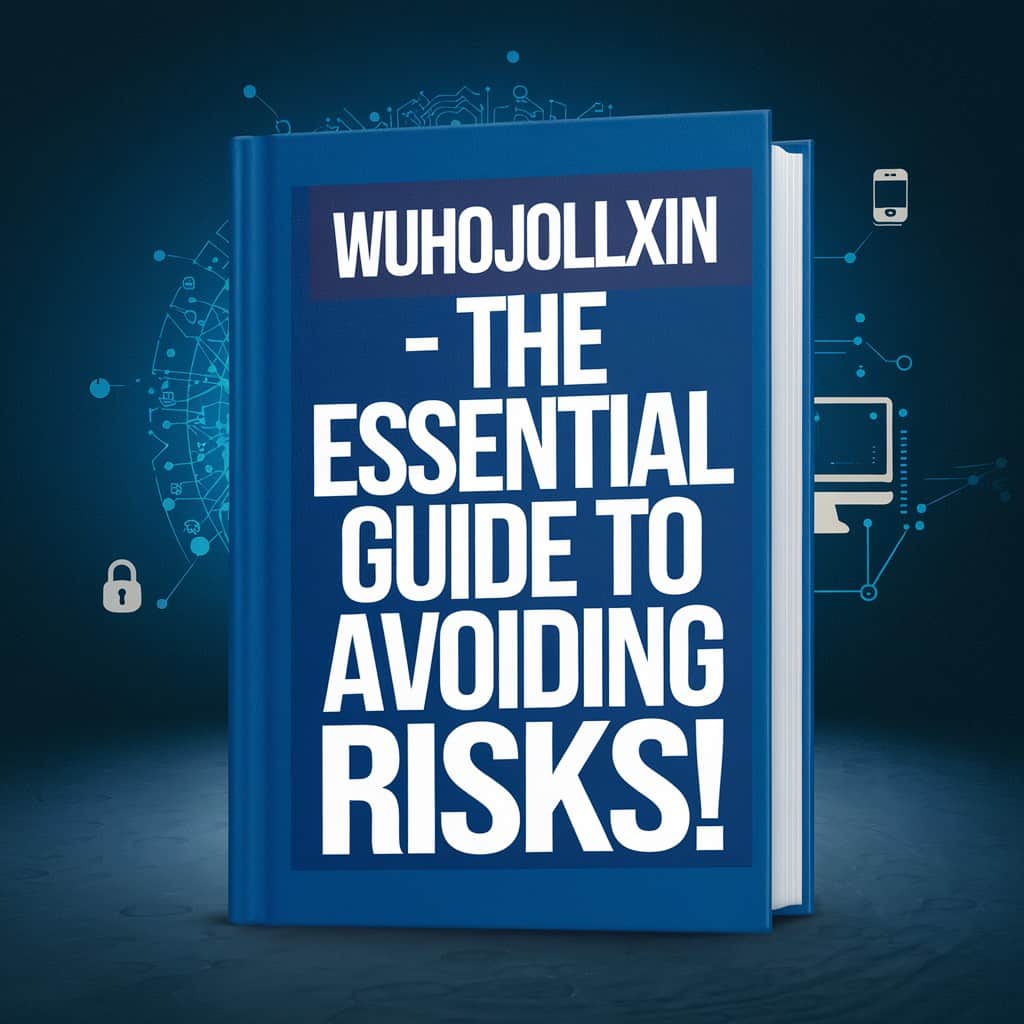Wuhoijollxin – The Essential Guide to Avoiding Risks!
Introduction
In today’s ever-evolving world of technology, terms like “wuhoijollxin” may appear unfamiliar, but their importance cannot be overstated. As more individuals in Germany and around the world turn to digital platforms for daily activities like shopping, banking, and communication, understanding the potential risks of unknown terms such as “wuhoijollxin” becomes crucial for personal security.
This article aims to help you understand what wuhoijollxin is, why it is gaining attention, and most importantly, how you can protect yourself from the potential dangers related to it. We will explore this topic in detail, with easy-to-follow advice, so you can be aware and stay safe online.
What Exactly is Wuhoijollxin?
At its core, wuhoijollxin refers to a set of online threats, often linked to fraudulent activities, that put individuals at risk of identity theft, financial loss, and other negative consequences. While the specific definition and nature of wuhoijollxin can vary, it commonly encompasses various forms of digital fraud, scams, and even the illegal misuse of personal data.
Given the rise of technology and the internet, wuhoijollxin has become increasingly prevalent. Its manifestation can be seen in many forms, including fake websites, phishing scams, fraudulent investment schemes, and misleading online advertisements.
Common Forms of Wuhoijollxin
- Phishing Scams: These are deceptive emails or messages that appear to come from legitimate sources, tricking users into revealing personal details like passwords and bank information.
- Fake Websites and Online Stores: Fraudsters often set up fake websites that mimic popular online stores to steal money or personal information.
- False Investment Schemes: These scams promise high returns on investments but ultimately steal the invested money.
By understanding how wuhoijollxin manifests, you are better equipped to spot and avoid it.
Why Should You Be Concerned About Wuhoijollxin?
While wuhoijollxin may sound like an obscure term, its risks are very real, especially for internet users in Germany. The consequences of falling victim to scams and fraud related to wuhoijollxin can be severe, affecting not only your finances but also your personal data and online reputation.

1. Identity Theft
A common risk associated with wuhoijollxin is identity theft. Fraudsters may steal personal information such as your social security number, address, or bank account details, which can lead to significant financial and personal damage.
2. Financial Loss
Many people fall victim to fake offers and fraudulent online stores. Once they make a purchase or enter their financial information, they find out the offer was fake, or worse, their bank accounts are drained.
3. Privacy Violations
Since wuhoijollxin often involves unauthorized access to private information, it can lead to a breach of privacy. Scammers may sell your data on the dark web or use it for malicious purposes.
4. Damage to Reputation
If your personal or financial data is misused, it can harm your online reputation. This is especially true for individuals who use the internet for professional purposes.
5. Legal Consequences
In some cases, unknowingly engaging in activities tied to wuhoijollxin could have legal repercussions. For example, being duped by a fraudulent business could result in legal consequences if your actions are linked to illegal transactions.
Also Read: https://acortaz.eu/que-es-un-servidor – A Complete Guide to Servers!
How Can You Protect Yourself from Wuhoijollxin?
The key to staying safe in today’s digital world is knowledge. Here are some proactive steps you can take to avoid wuhoijollxin and protect your personal information:
1. Stay Cautious When Sharing Personal Information
The first and most important step to avoid wuhoijollxin is being cautious about where and when you share your personal information. Avoid providing sensitive details, such as your credit card number, bank details, or passwords, unless you’re sure the platform is secure and trustworthy.
Best Practices:
- Always check that a website uses HTTPS encryption.
- Never share personal details via email or unsecured websites.
2. Verify Websites Before Making Purchases
Fake online stores are one of the most common forms of wuhoijollxin. Before purchasing anything online, always verify the legitimacy of the website. Look for customer reviews, check if the site has contact information, and confirm its reputation.

How to Verify a Website:
- Check if the website has a valid security certificate.
- Search for online reviews or customer feedback.
- Avoid clicking on suspicious links or pop-up ads.
3. Use Strong and Unique Passwords
Creating strong and unique passwords is one of the easiest ways to protect your accounts from being compromised. A weak password can make it easy for scammers to gain access to your online profiles and commit fraud.
Tips for Strong Passwords:
- Combine uppercase and lowercase letters with numbers and special characters.
- Avoid using the same password across multiple sites.
- Consider using a password manager to keep track of your passwords securely.
4. Enable Two-Factor Authentication (2FA)
Whenever possible, enable two-factor authentication (2FA) on your online accounts. This adds an extra layer of security by requiring a second form of identification—like a text message or authentication app—before granting access.
5. Install Anti-Virus Software
Anti-virus software can detect malware and other security threats associated with wuhoijollxin. Make sure your computer or smartphone has the latest anti-virus protection and that it’s regularly updated.
6. Be Skeptical of Too-Good-to-Be-True Offers
Scammers often entice victims with offers that are too good to be true. These offers might include products at a fraction of their real price or promises of easy money from investments.
What to Do:
- If the offer seems too good to be true, it likely is.
- Research the offer before making any decisions or entering personal information.
7. Educate Yourself on Emerging Threats
Cybercriminals are constantly evolving their tactics, so it’s crucial to stay informed about the latest scams and how to avoid them. Many cybersecurity blogs, news sites, and forums offer regular updates on new threats like wuhoijollxin.
How to Stay Informed:
- Follow trusted cybersecurity blogs and news sources.
- Participate in online forums where experts discuss cybersecurity threats.
The Impact of Wuhoijollxin in Germany
Germany has one of the most advanced digital infrastructures in Europe, with millions of people using the internet for a wide variety of activities. However, this increased digital engagement also means there is a growing risk of encountering wuhoijollxin.
1. Growing E-Commerce in Germany
As e-commerce continues to grow in Germany, more individuals are making online purchases. While most online transactions are secure, fraudsters take advantage of this trend to create fake websites that look like legitimate online stores.
Protect Yourself:
- Always check for SSL encryption and customer reviews before making a purchase.
- Be wary of websites offering huge discounts on products that are not available elsewhere.
2. Increased Online Banking
Many Germans rely on online banking services, which makes it important to secure your online banking details. Wuhoijollxin can take the form of phishing scams or fake banking apps designed to steal your login credentials.
How to Stay Safe:
- Use multi-factor authentication for banking apps.
- Regularly check your account for suspicious activity.
Also Read: WJSFKS – The Mystery You Need to Know About!
FAQs about Wuhoijollxin
1. What exactly is Wuhoijollxin?
Wuhoijollxin refers to a series of online scams, frauds, and risks that involve the unauthorized use of personal or financial information.
2. How can I avoid Wuhoijollxin?
To avoid wuhoijollxin, be cautious with personal data, use secure websites, enable two-factor authentication, and stay informed about online threats.
3. Is Wuhoijollxin common in Germany?
Yes, wuhoijollxin-related scams are becoming increasingly common in Germany due to the rise in online shopping, banking, and digital services.
4. How can I verify if a website is safe?
Look for SSL encryption (HTTPS), check customer reviews, and research the website before making any transactions or sharing personal information.
5. What should I do if I fall victim to Wuhoijollxin?
If you’ve been scammed, contact your bank, change your passwords, and report the fraud to relevant authorities in Germany.
Conclusion
In the digital age, understanding and protecting yourself from online threats like wuhoijollxin is more important than ever. By staying informed, using strong security practices, and remaining vigilant against scams, you can safeguard your personal information and prevent financial losses.

